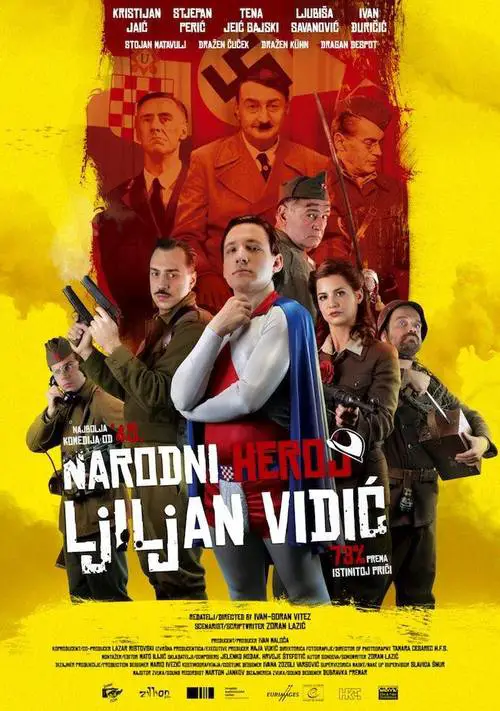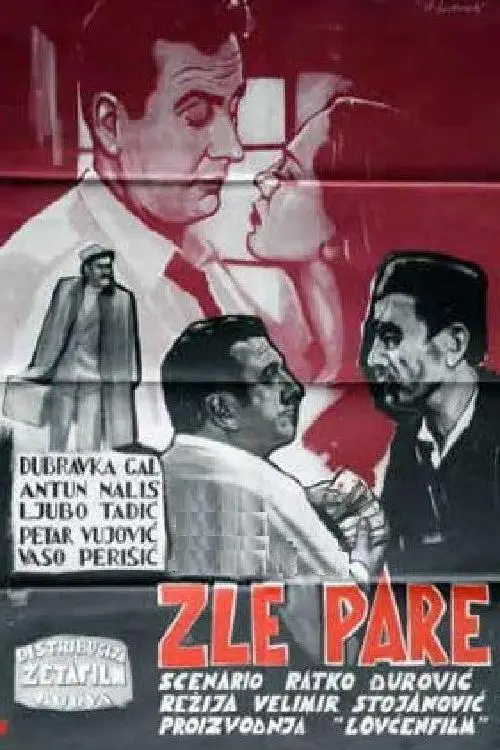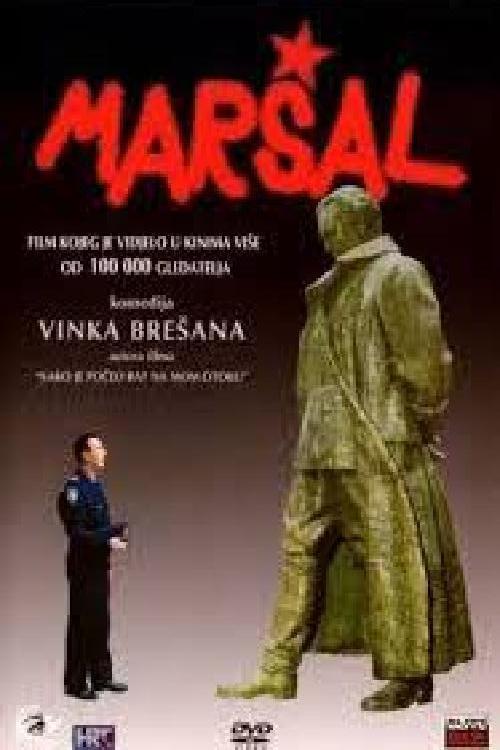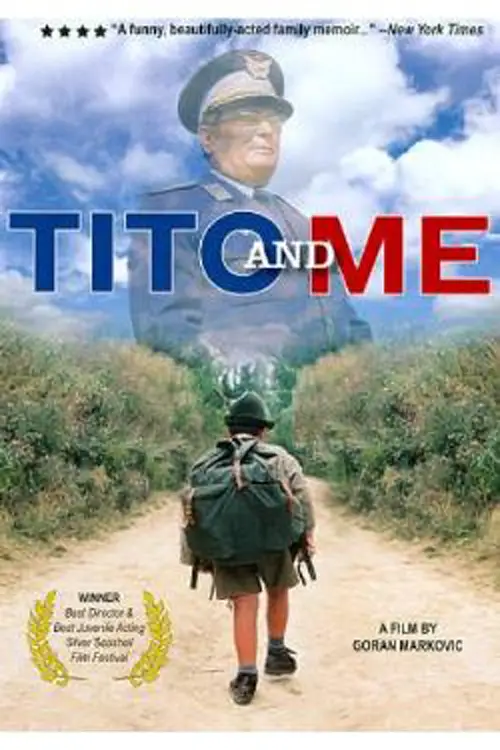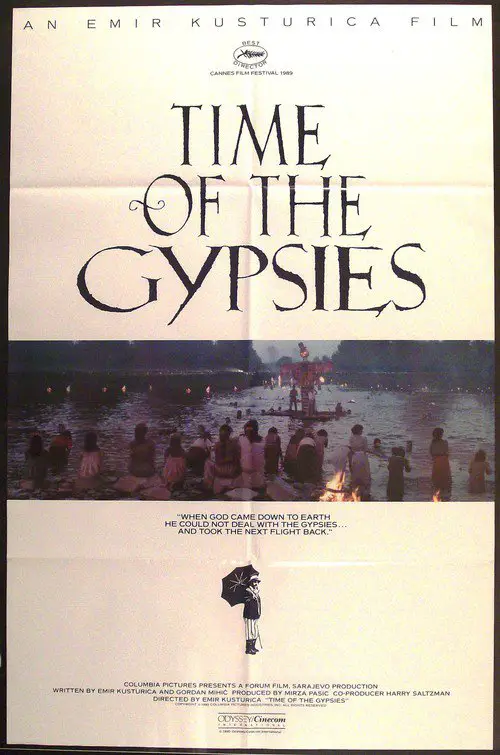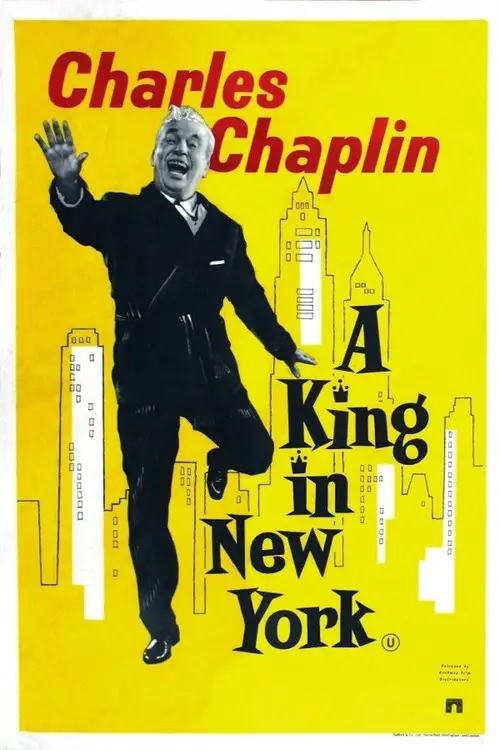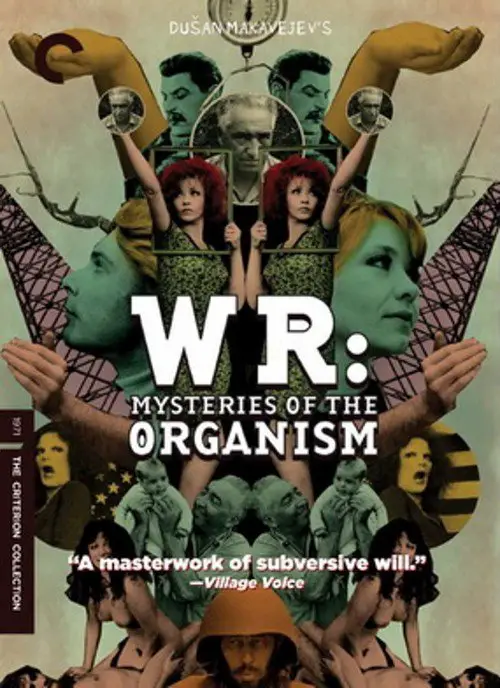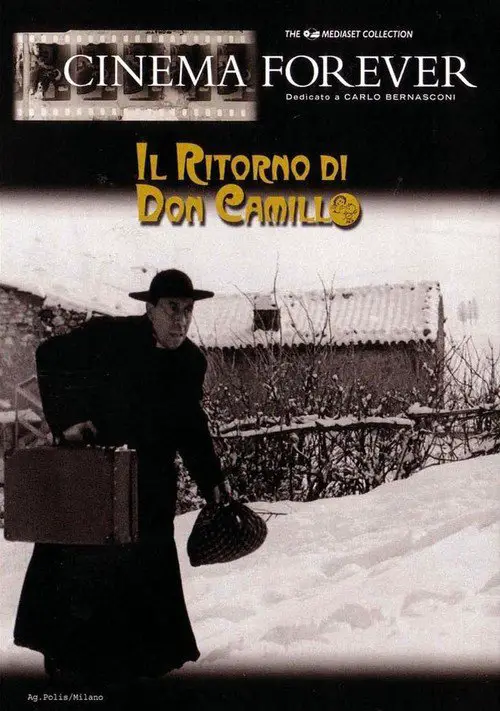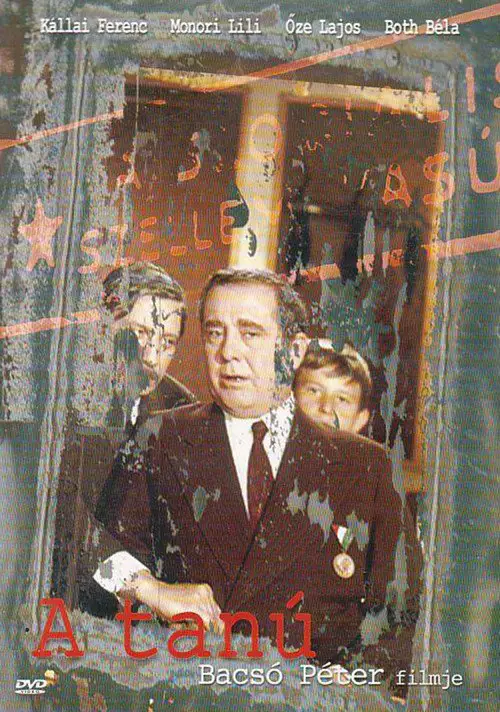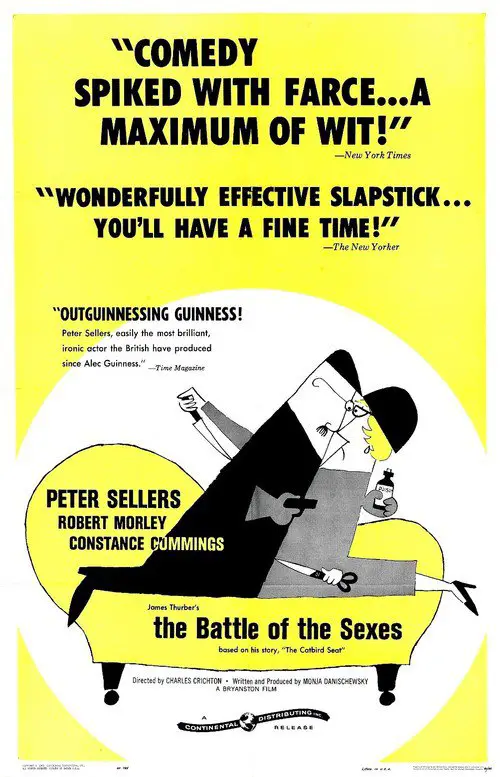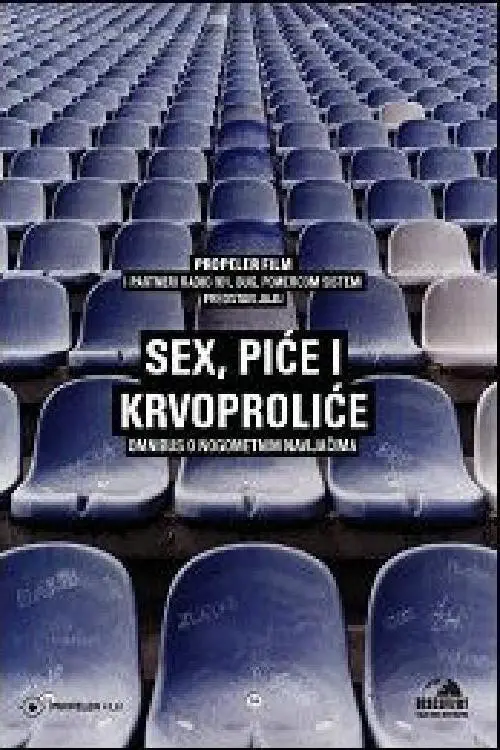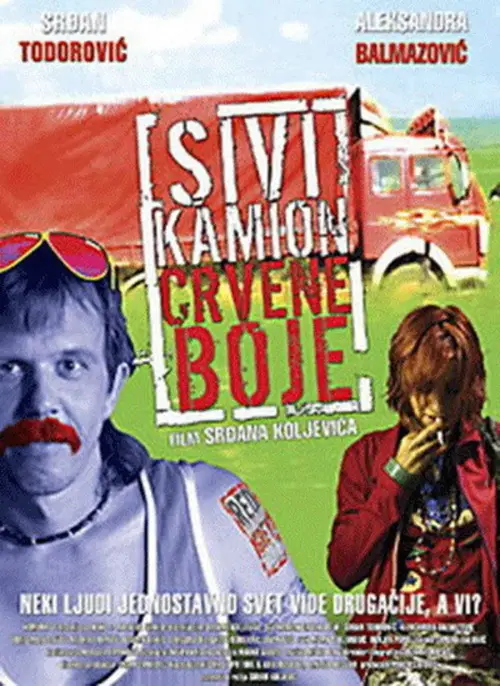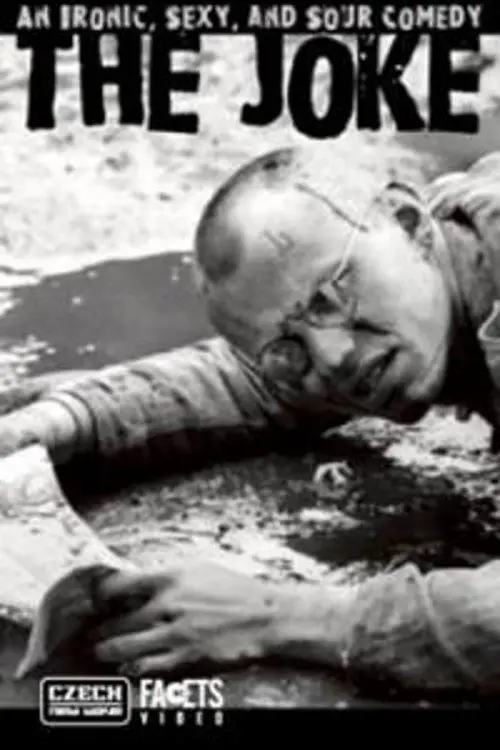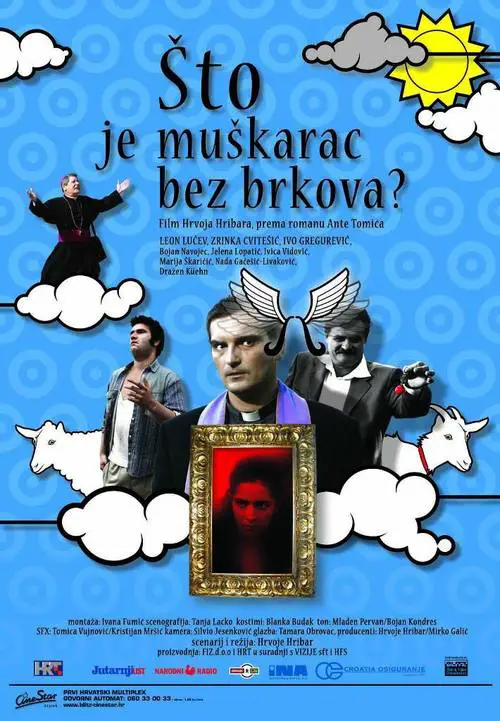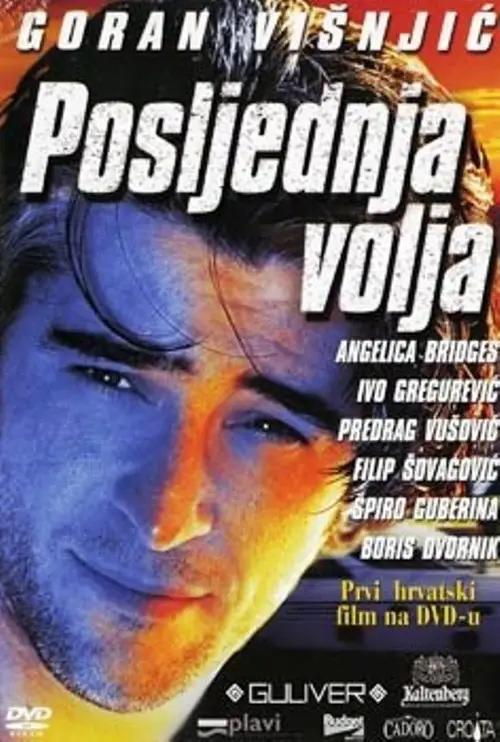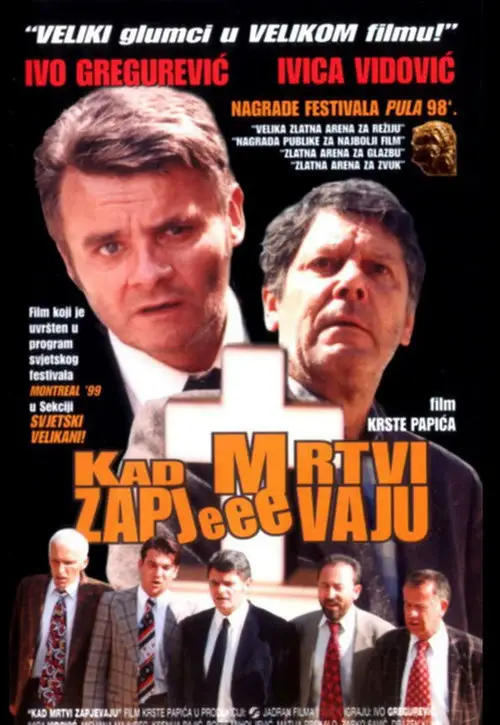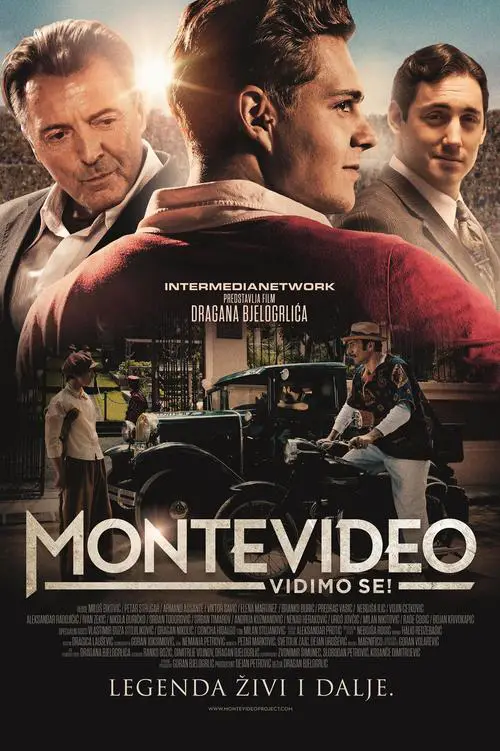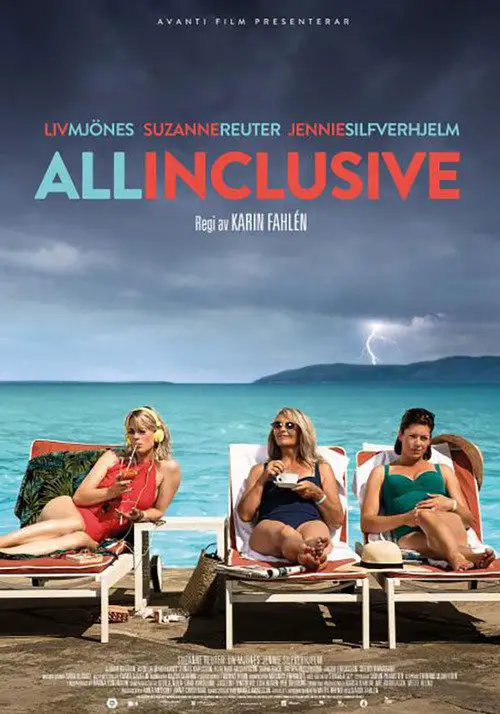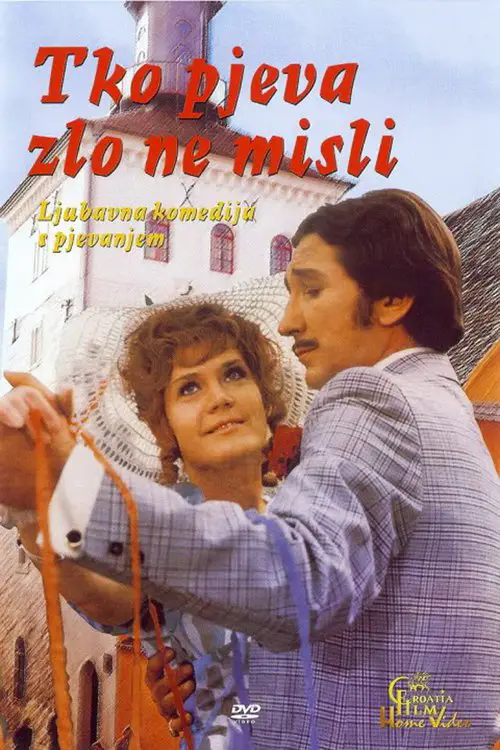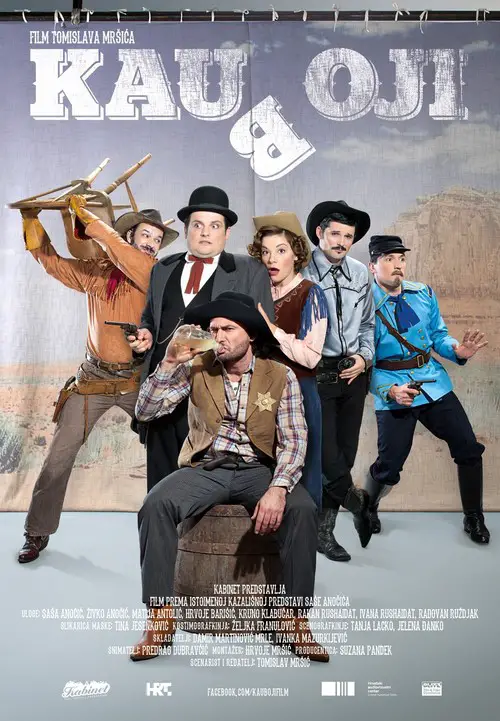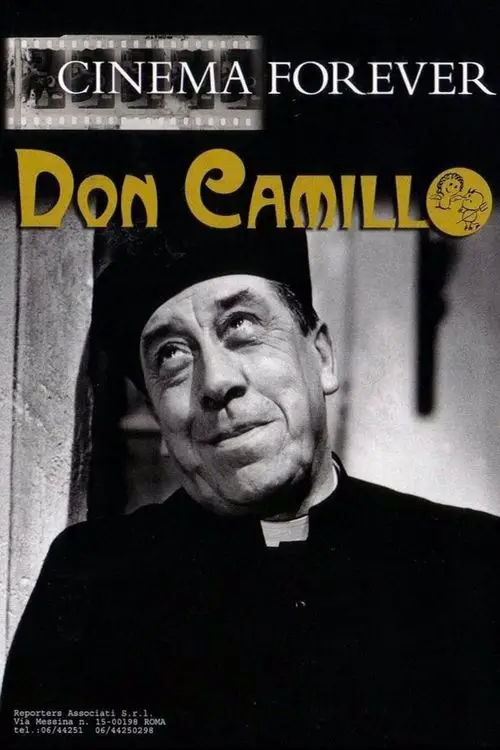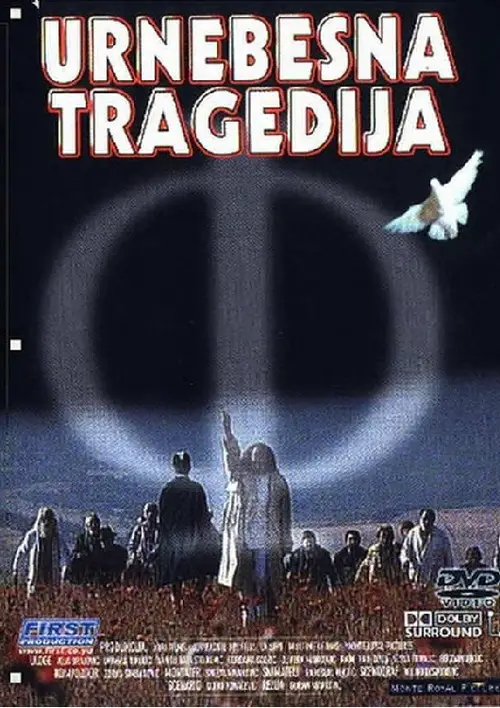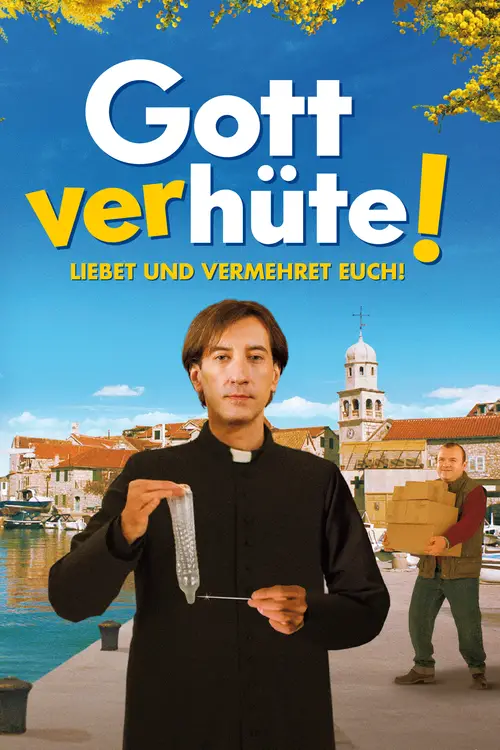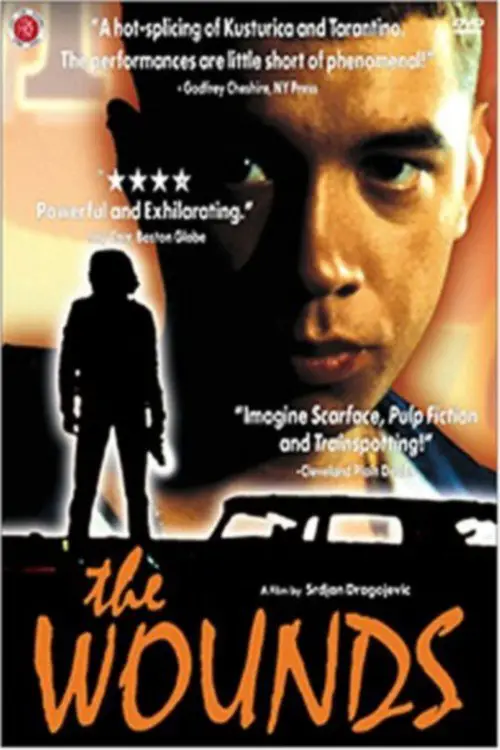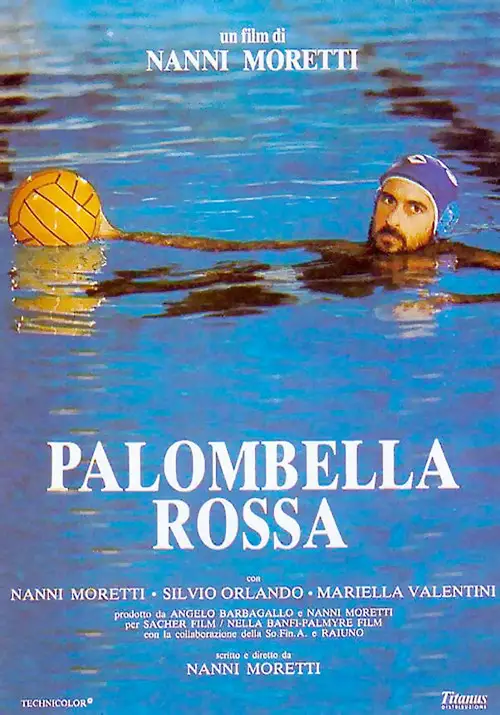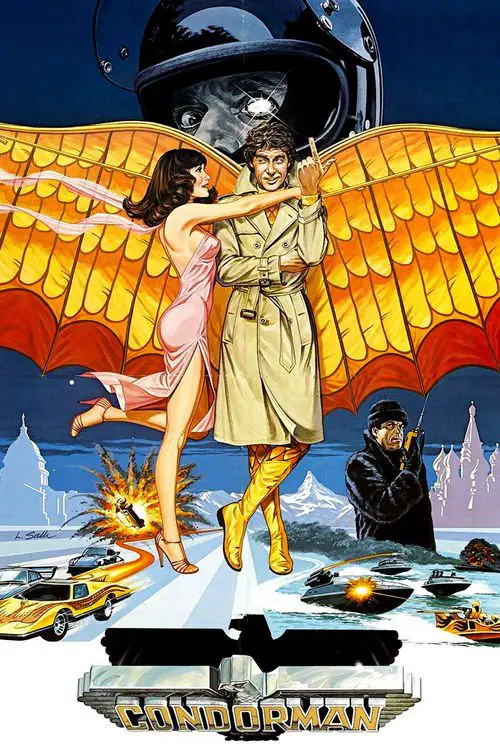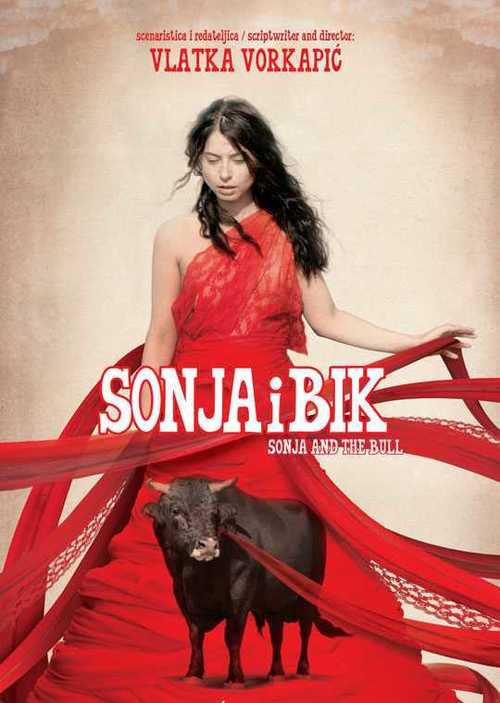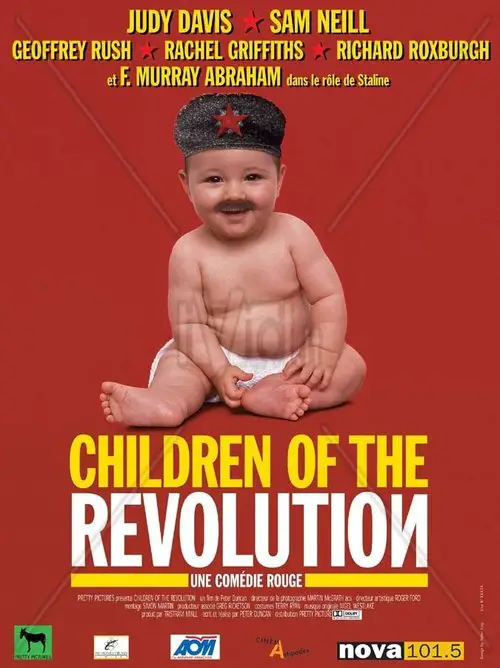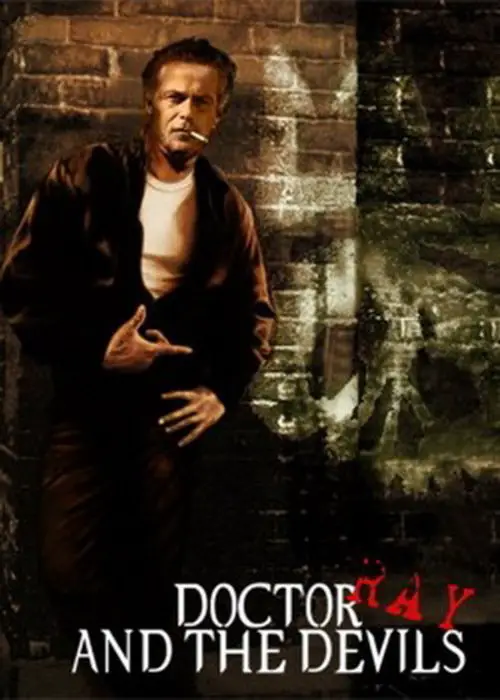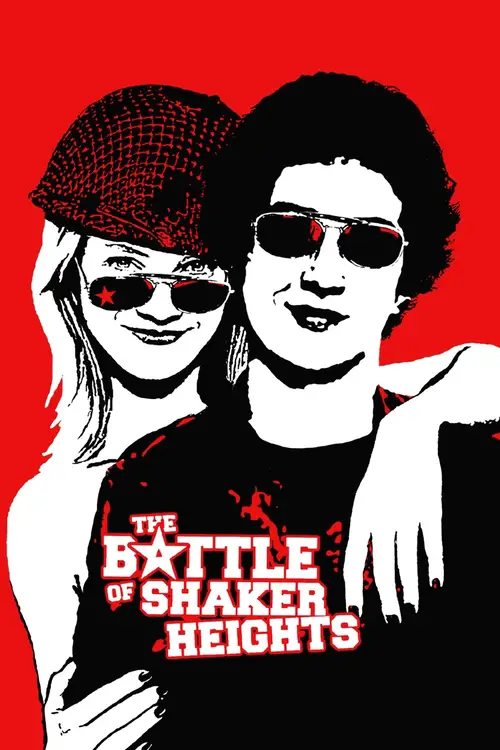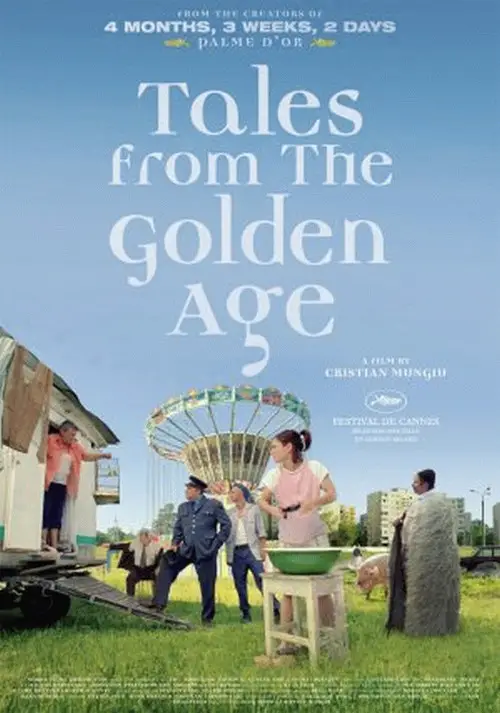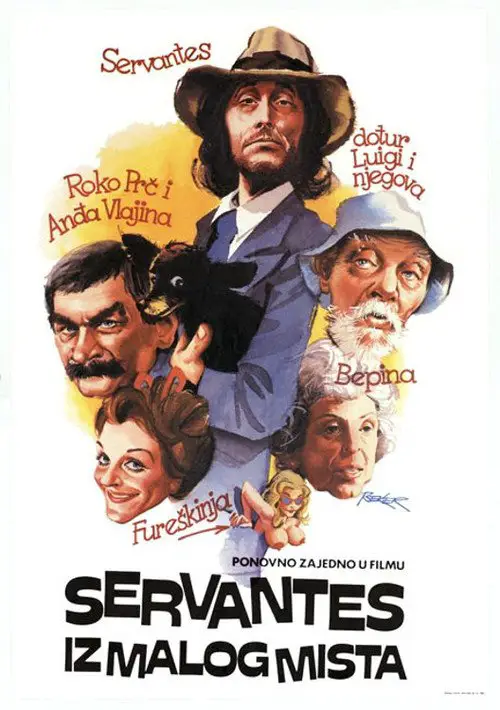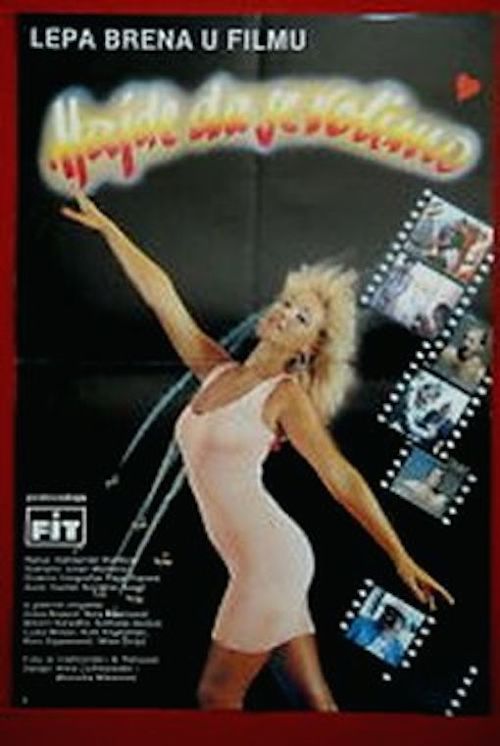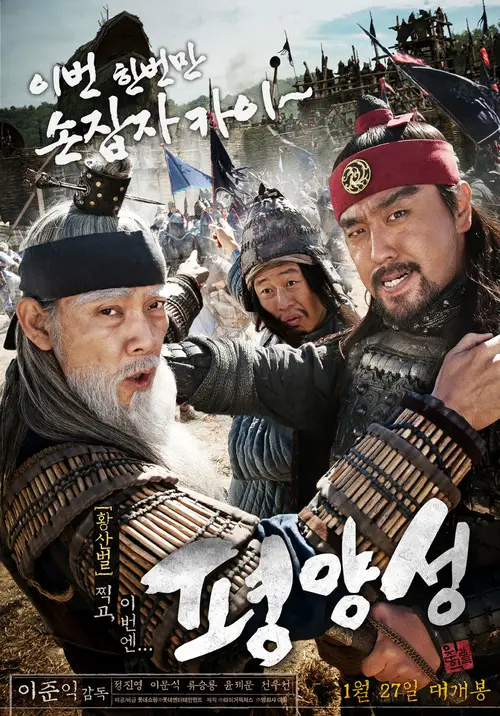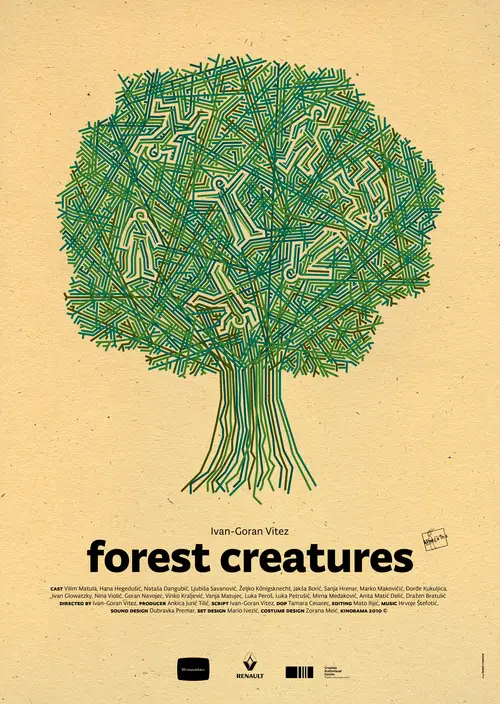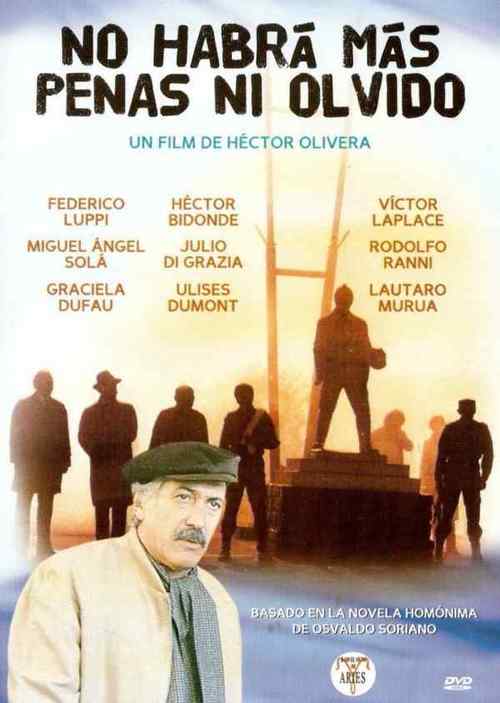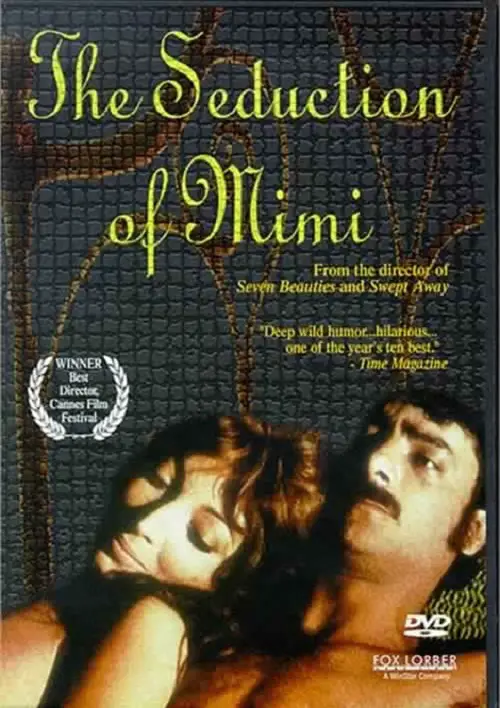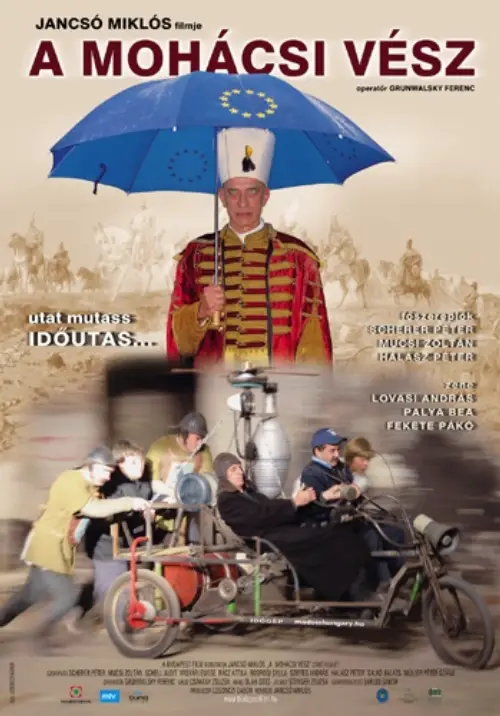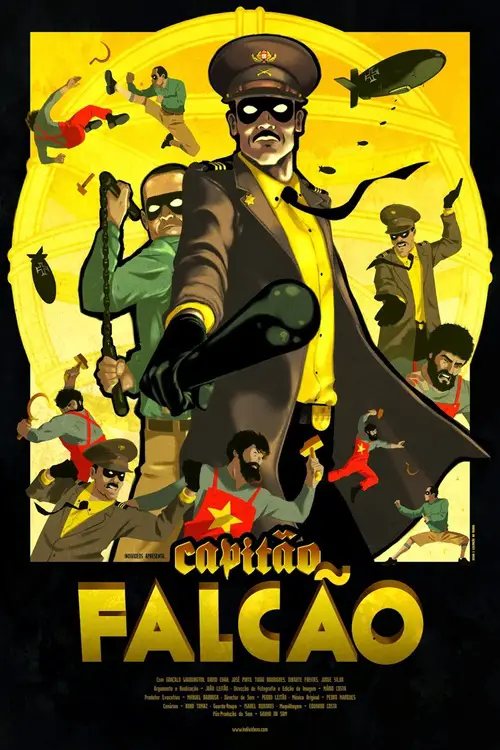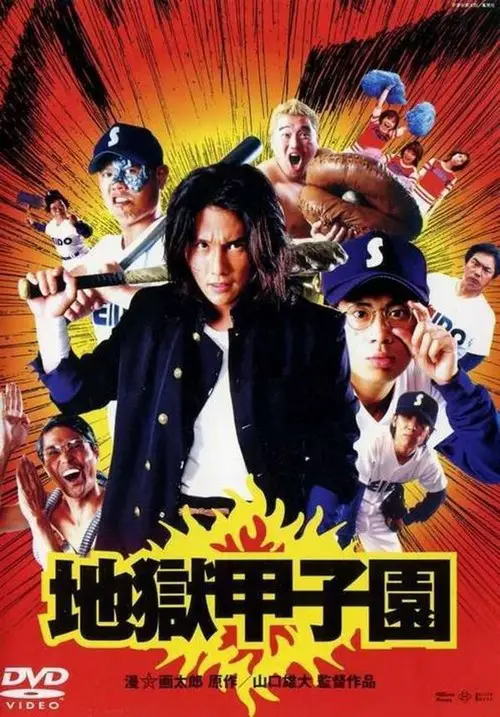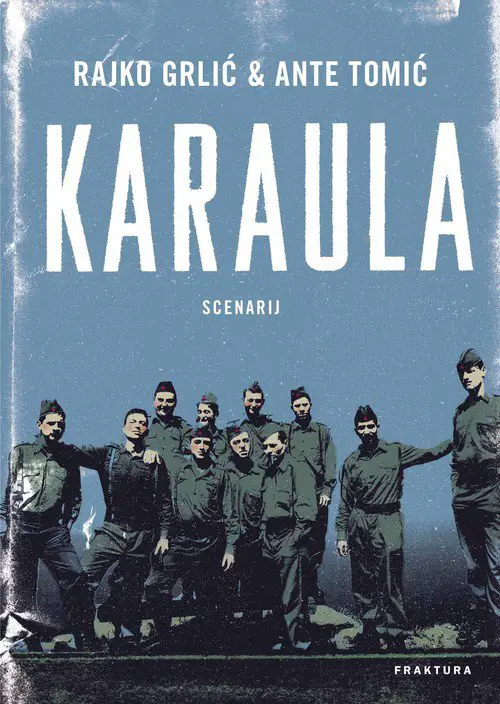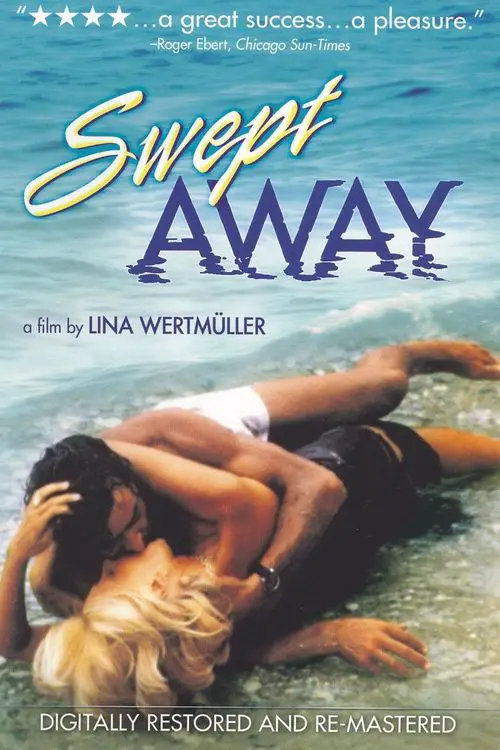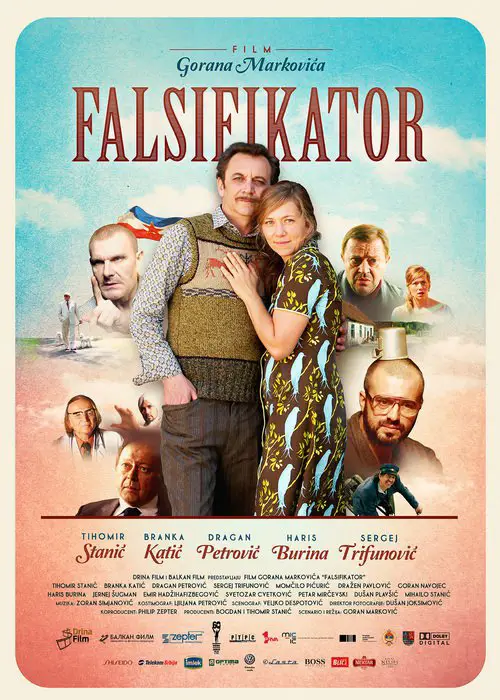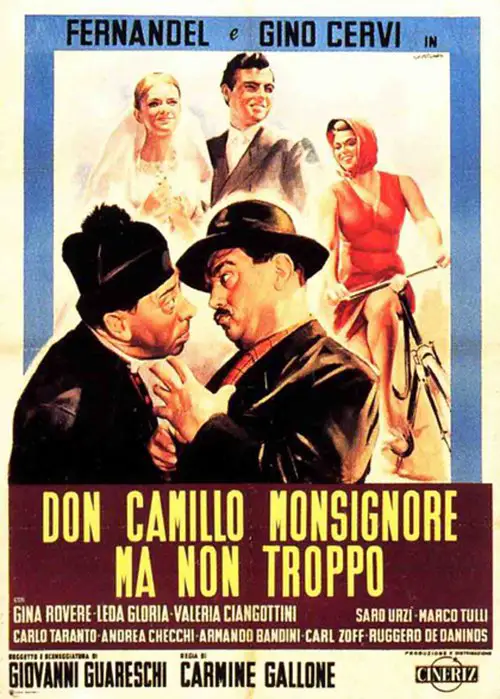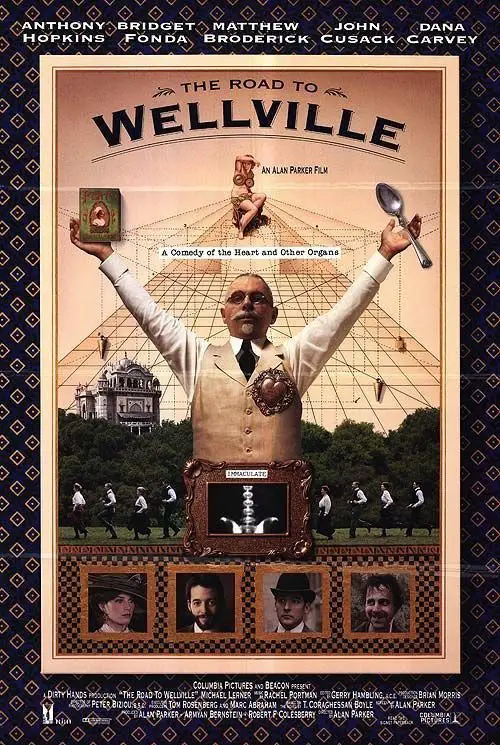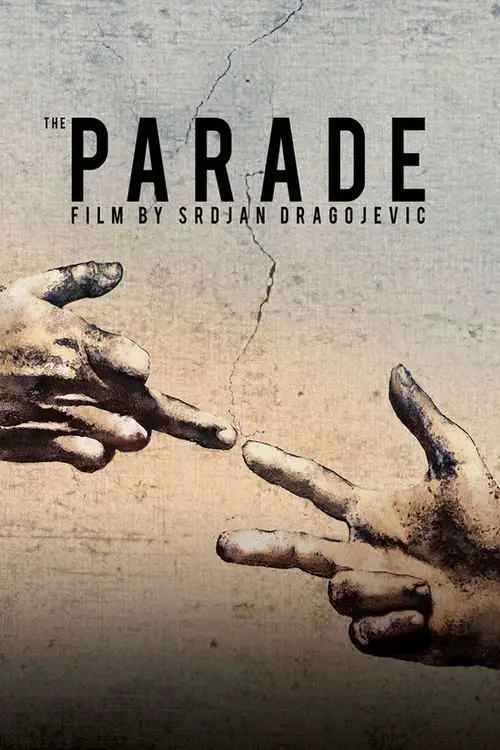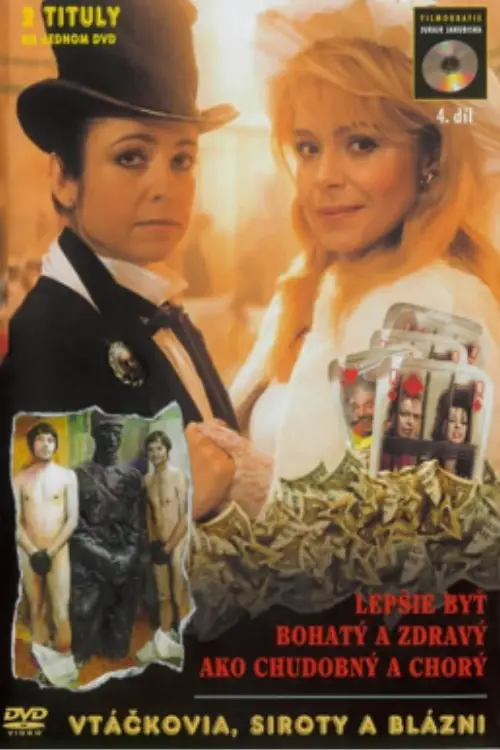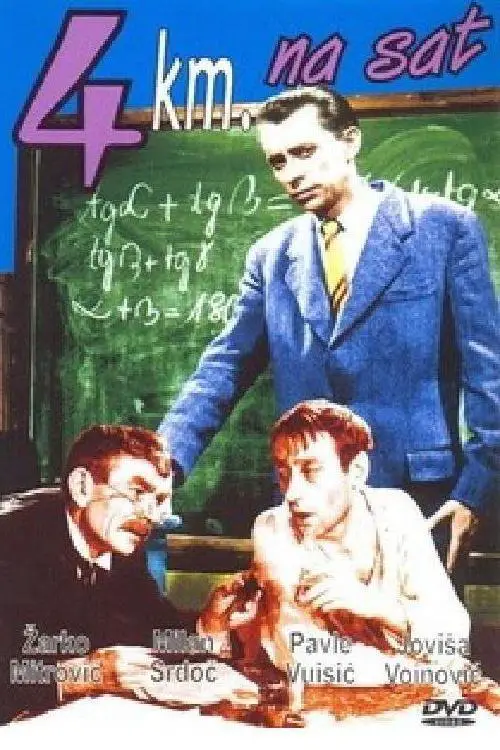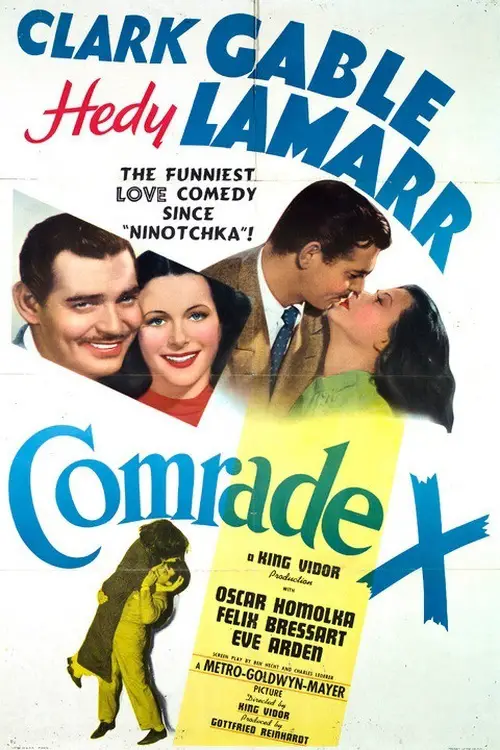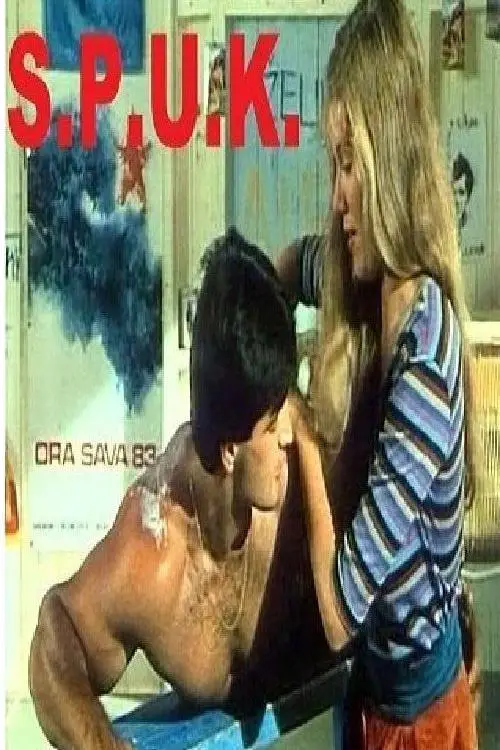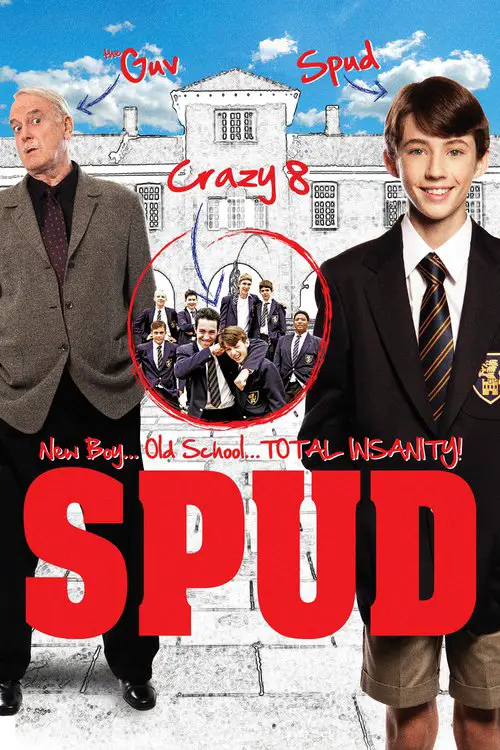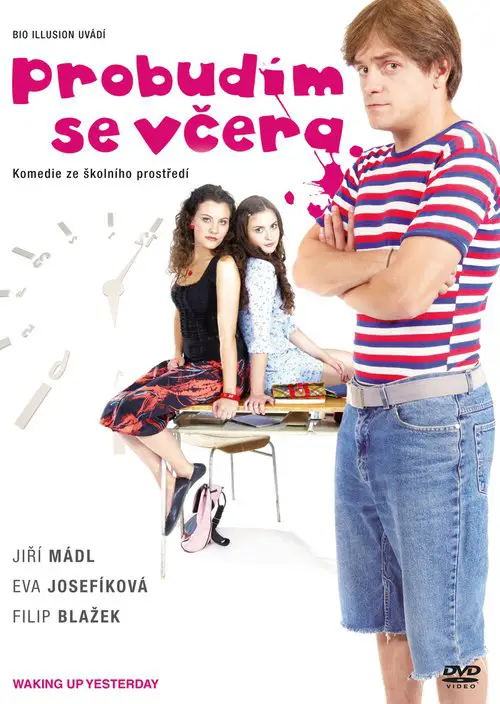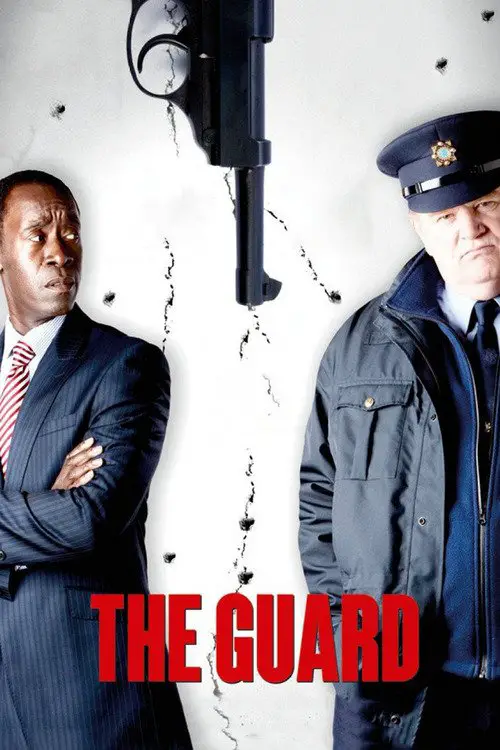How the War Started on My Island (1997)

Similar movies
Black marketeers Marko (Miki Manojlovic) and Blacky (Lazar Ristovski) manufacture and sell weapons to the Communist resistance in WWII Belgrade, living the good life along the way. Marko's surreal duplicity propels him up the ranks of the Communist Party, and he eventually abandons Blacky and steals his girlfriend. After a lengthy stay in a below-ground shelter, the couple reemerges during the Yugoslavian Civil War of the 1990s as Marko realizes that the situation is ripe for exploitation.
This comedy of the absurd is set in the Nazi puppet Independent State of Croatia (NDH) during World War II. The hero, Ljiljan is a young peasant poet who joins the Partisan movement just before it falls apart, abandoned by its leader Tito. The last remaining hope for resisting Nazism is to assassinate Hitler. Ljiljanâs task is to write a song that will allow his Partisan band to infiltrate the inner sanctum of the SS â by entering an SS talent show. If they win the competition, they will be invited to perform before Hitler and the NDHâs high command. This is a satirical coming-of-age tale with a difference, capturing the craziness, comedy and horror of war in the Balkans.
On the Eve of WW2, the royal government of Yugoslavia hid the national money inside the cave around village of OzriniÄi in Montenegro. The locals discovered the heaps of money by accident, and soon begun to build new houses and buy the land. Unfortunately, the Italians occupied the country and burned their properties to ashes. Based on a true story.
Stipan is a policeman who comes to small Adriatic island off the Croatian coast in order to investigate reported strange phenomena that had frightened the whole population. At first, nobody wants to co-operate with him, but he finally finds that the island is being allegedly haunted by the ghost of Josip Broz Tito, Communist leader of former Yugoslavia. For Luka, the mayor, this is the opportunity to turn entire island into Tito-themed amusement park. Tito's WW2 veterans, on the other hand, don't believe in ghosts; for them, the apparition is actually Tito himself, who had returned in order to lead them into a new revolution which would restore Communism. Written by Anonymous
Goran Markovic, known more for his dramatic work, achieved something that's eluded many great filmmakers - both smart and funny comedy. Based loosely on his own life as a kid growing up in Tito's communist Yugoslavia in the 1950s, the movie centers around 10-year-old Zoran whose inspired poem about Tito written on a spur-of-the-moment-basis as an in-class assignment, earns him a trip with other deserving pupils retracing Tito's "revolutionary trails" in Tito's hometown of Kumrovec.
Miss World Virginity, who is nearly mute, endures a horrifically kinky honeymoon but soon escapes to a scatalogically inclined commune in Vienna. Meanwhile, a madwoman pilots a candy-stuffed boat down a river. Yugoslavian director Dusan Makavajev intercuts these two wild tales with shocking footage of the discovery of mass graves from the Katyn Massacre.
A dense film that cuts up footage of a primary plot of two young Yugoslavian girls, one a politico and the other a sexpot, and an affair with a visiting Russian skater. Mixing metaphors of Russia's relationship with Yugoslavia, intercut with footage and interviews with Wilhelm Reich and Al Goldstein of Screw magazine. The film applies Reich's theories of Orgone energy and analogies of Stalinism as a form of Freudian sexual repression. Also known as W.R. The Mysteries of the Organism in English subtitled version. Was banned in Yugoslavia shortly after it was made.
After his battles with the communist mayor Peppone, Don Camillo is sent in exile by his bishop in a remote village. Peppone thought he got the village in his hands. But when the municipality decide to build a dike against the periodic floods, the proprietor of the land refuses. War between the village clans is about to begin. Maybe only the strong hand of the priest could persuade the landlord to change his mind. Will Peppone passed over his pride and send for his enemy?
On April 5, 1941, a day before Nazi attack on Yugoslavia, entourage on a country road board Krstic's bus heading for Belgrade: two Gypsies who occasionally sing about misery, an aging war veteran, a Nazi sympathizer, a dapper singer, a consumptive, and a man with a shotgun. Krstic is a world-weary cynic, out for a buck; the driver is his son, the simple, cheerful Misko. En route they pick up a more people and head towards their destiny.
Life is a Miracle (Serbian: Život je Äudo) is a Serbian drama film. It was entered into the 2004 Cannes Film Festival. Luka has moved to Bosnia from Belgrade with his mentally unstable wife and his football-playing son, MiloÅ¡, to run a railway station and act as caretaker. Utterly engrossed in his work and blinded by natural optimism, Luka remains deaf to the increasingly persistent rumblings of war, which has broken out in Croatia and threatens to spread. When the conflict explodes, MiloÅ¡ is denied his place on the football field when he must join the Serbian army, and his wife disappears on the arm of a Hungarian musician. Eventually, he receives news that MiloÅ¡ has been taken prisoner of war. Luka considers suicide, but a profiteering acquaintance presents him with Sabaha, a Bosnian Muslim whom he has taken hostage. Luka intends to exchange Sabaha for MiloÅ¡, but the two fall in love after they are forced to flee deeper into Serb-controlled territory...
Known as the best satire about communism, banned for over a decade in Hungary. 'The Witness' has become a cult classic, well received by critics and general audiences when it was finally released outside of Hungary. 'The Witness' takes place during the height of the Rákosi Era, which was closely modeled after the ruthless and brutal Stalin regime. The film follows the life of an ordinary dike keeper, József Pelikán, who has been caught for illegally slaughtering his pig, Dezsõ. Instead of doing hard time for his "heinous" crime, Pelikán is elevated into an important position, generally reserved for the communist elite. His new benefactor, the mysterious Comrade Virág, is reluctant to reveal the real reason behind Pelikán's preferential treatment. Thus, begins Pelikán's hilarious adventure deep within the "sophisticated" communist society... Until one day, when he gets called for to return the "favour" by falsely testifying against his long-time friend in a mock-up show trial.
Angela Barrows is a man-eating business woman sent by her American employer to investigate their export opportunities in Edinburgh. En route she meets Robert MacPherson a businessman who asks for her help to bring his company into the 20th Century. The staff, led by Mr Martin has other ideas though, and a battle between the old and new business methods soon breaks out.
Belgrade, the summer of 1991. Yugoslavia is falling apart. Gavran can't get a driving licence because he is color blind. He is a rural Bosnian introvert obsessed with trucks. So, as soon as he is released from prison, he steals a truck to go on a joyride. Suzana, a city girl, discovers she is pregnant, but until she's due for an abortion, she decides to go to Dubrovnik. She hitchikes and Gavran almost runs her over. She is unhurt, but she blackmails him to take her to Dubrovnik. Two people from different worlds, equally removed from the real one. For him she is the first woman he can talk to; for her he is just another idiot to add to the long list of them that she has so far compiled. But the pressure of danger and the intimations of war force them together. The world about them has become so absurd that they seem to each other the only sober people left.
At the beginning of 1990s, two Croatian emigrants, economically minded Cinco and politically minded Marinko, arrive in Croatia from Germany, homesick for their families and hometowns. In order to get a German pension, Cinco pretends to be dead and travels in a coffin. Soon, Marinko joins him because he is running away from an old agent of the Yugoslav State Security Service. On their trip in a motor hearse, Cinco and Marinko face many adventures, which culminate when they are stopped at Serbian barricades close to their destination.
A trip to Croatia to celebrate Inger's 60th birthday. The whole thing sounded like a great idea until Inger caught her husband having an affair. When the plane takes off for Split the depressed Inger and her two daughters, much too sensible Malin (35) and chaotic Tove (32) are on board. Tove has to struggle to be included in Inger and Malin's circle, the sister's rivalry over their mother is so strong it quickly escalates into a competition of who can comfort Inger the best.
Set in pre-World War II Zagreb, the story is seen through the eyes of 6-year-old Perica Å afranek (played by Tomislav Žganec). A dandy from Zagreb, Mr Fulir (played by Relja BaÅ¡iÄ), starts flirting with Perica's mother during a family picnic. At first, Perica's father doesn't notice anything, but wants to marry off Perica's aunt, so he invites the man to their residence. After multiple rendezvous, Perica's father becomes aware of Fulir's attempts to seduce his wife.
Six men, one woman (and her brother) come together with one goal - to make the play. It would be probably another common story that this theater group is composed of anti-heroes who float lost in time and space, in a town where it seems that the sun sets in the east. Led by Sasha, a director who has recently returned to his hometown, this group of socially neadaptiranih amateurs starting the fight to their demons and the prejudices that surround them in the society. For dramaturgical template selection western and riding on stereotypes of the genre of the struggle between good and evil, the conflict between civilization and wilderness, the protagonists develop their life stories inevitably influencing and changing each other. Although, as time passes, the show looks increasingly like a mission impossible, almost all of its stakeholders is increasingly seen as a metaphor for their fate and get caught for it as the opportunity of a lifetime .
In a village of the Po valley where the earth is hard and life miserly, the priest and the communist mayor are always fighting to be the head of the community. If in secret, they admired and liked each other, politics still divided them as it is dividing the country. And when the mayor wants his "People's House"; the priest wants his "Garden City" for the poor. Division exist between the richest and the poorest, the pious and the atheists and even between lovers. But if the people are hard as the country, they are good in the bottom of there heart.
In a way of protesting for inhuman living conditions and the shortage of medications caused by the disintegration of Yugoslavia and its sanctions, a doctor in a hospital decides to close his clinic for mental illness. His wish is to return the patients to their homes or give them to someone who is willing to accept them temporarily.
Don Fabijan is a young priest who comes to serve on an unnamed small island in the Adriatic. In order to help increase birth rate on the island, he decides to pierce condoms before they are sold. He therefore teams up with the newsagent Petar and the pharmacist Marin. After they abolish all forms of birth control on the entire island, the consequences become more and more complicated.
Michele is the leader of the Italian communist party and a professional water polo player. On this day he's just lost his memory following a (very stupid) car accident. So he has to discover the intricacies of his life again, and he does so through the naive eyes of the anxious child he used to be - through an improvised psychoanalytic trip symbolized by the friendships and adversities of a water polo game.
Comic artist and writer Woody performs a simple courier operation for his friend Harry who works for the CIA. But when he successfully fends off hostile agents, he earns the respect of the beautiful Natalia, who requests his assistance for her defection. Woody uses this request as leverage to use the CIA's resources to bring his comic book creation, Condorman, to life to battle the evil Krokov.
Sonja and the Bull: Sonja, a city girl from Zagreb, a vegetarian and a hardcore animal-rights activist, strongly opposes bullfighting in Dalmatinska zagora (Dalmatian Hinterland). People find this irritating and they conclude that no matter how passionately Sonja loves animals, she would never dare to stand in front of a bull. Bets are raised and Sonja faces a challenge in the form of Ante, known far and wide for his powers of persuasionâ¦
The story behind and around famous American director Nicholas Ray's 1960s stay in SFR Yugoslavia. The celebrated director who was the toast of Hollywood only a decade earlier having made Rebel Without a Cause has fallen on hard times and is now desperately trying to re-establish his spiraling film career. On the other hand, his powerful host, Avala Film director and former Yugoslav secret service operative Ratko DraževiÄ, is dreaming big dreams - he is trying to establish a 'Hollywood behind the Iron Curtain' of sorts.
A quirky teen with a penchant for war reenactments, Kelly Ernswiler obsesses over military tactics with his buddy Bart. The school bully is one of Kelly's regular headaches, and he also has to deal with a frustrating situation at home, where his father is a recovering drug addict. Kelly's life gets even more complicated when he falls for Tabby, Bart's pretty and soon-to-be-wed older sister.
Tales from the Golden Age is composed of 5 unconventional short stories, each one dealing with the late communist period in Romania, told through its urban myths from the perspective of ordinary people. The title of the film refers to the alluded "Golden Age" of the last 15 years of CeauÅescu's regime.
'Malo Misto' lives its own life, but not far behind the times. Hotel manager Roko PrÄ strives to organise tourism, so he introduces the first nudist beach. His wife AnÄa brings two of her cousins from the Dalmatian hinterland and demands Roko to hire them. One of them, a young man named Ikan, earns the attention of a beautiful Swedish tourist. From Chile to Malo Misto returned TonÄi, nicknamed Servantes, of course, without any money. He fell on the back of his hardworking aunt Keka, who even without him has enough problems of her own. Servantes also experiences an unexpected romance.
The new Dutch owner of a Croatian marketing agency is organizing an action-style team building for his employees over weekend. After rafting which ends up with an incident, the employees divide in two paintball groups. While making their way through the forest full of surprises â a local family who is plotting against their lives, suspicious instructors, a random pair of hikers and bizarre accidents. As the day comes to its end, it is clear that, after this game, nothing will ever be the same.
A small revolution breaks out in a small Argentine town, as one group of Peronists calls they newly elected peronist a communist. The newly elected official enlists the aid of allies ranging from the town drunk to young peronists to help hold his post. What follows is a slapstick war with a serious message.
Mimi is a Sicilian dockworker who loses his job when he votes against the Mafia candidate in what he thinks is a secret ballot. He leaves his wife behind and goes to Turin, where he meets and moves in with Fiore, a street vendor and Communist organizer. They have a child, he works non-union jobs, and again he comes to the Mafia's attention. This time they're impressed, promoting him to a supervisor's job back in Sicily. He must keep Fiore and the child a secret, which is fine with Fiore, as long as he never makes love to his wife. He doesn't, and when she becomes pregnant, he knows he's a cuckold. His personal revenge and the Mafia's tentacles then intertwine in tragicomic ways.
By the notes of Fiáth Pompeiusz, the one-time friend of Kapa and Pepe, Professor Szirtes has solved the secret of the time machine, and he realizes the invention relying on "special" H2O. Kapa and Pepe shall return by it into the past in order to set time right, which is out of joint, that is, to correct history, to save King Louis II, and prevent the Mohács Disaster. Pepe yields to the not too tender persuasion to enter upon the great journey through time, dies and revives, and they arrive at the battlefield of Mohács in time. Kapa films the events. The Turks win and cut off the kingâs, Pepeâs, head, still the Hungarians dictate the peace treaty. Kapa and Pepe want to return, they fill the time machine up with water from the well, yet it wonât start. Even so Kapa and Pepe hover over Budapest and quarrel.
A satire on anti-communist paranoia in the days of fascist dictatorship in Portugal. The series follows the adventures of the "Lusitanian superhero", the ultra-patriotic Captain Falcão, a man who follows the direct orders of António de Oliveira Salazar in the fight against the "red menace". Starring Gonçalo Waddington, as Captain Falcão, David Chan Cordeiro (also responsible for coordinating the work of doubles) as his sidekick Puto Perdiz and José Pinto in the role of portuguese dictator, António de Oliveira Salazar.
Battlefield Baseball is a tough game--it doesn't end until all the members on the opposing team are dead. In this game the Gedo High team is composed of blue-faced zombies, and their opponents on the Seido High team know they don't have a chance at beating them unless they can bring back a star pitcher who has a lethal pitch called the Super Tornado, but who has hung up his cleats and has no desire to return to the game.
At a small border-post on the Yugoslav-Albanian border, yet another generation of soldiers suffering the usual amount of boredom awaits the end of their service, counting days to the moment when they should take their uniforms off for good. It is the spring of 1987 and the thought never even crosses their mind that they would, in fact, put them back on quite soon and go to war.
Our story takes place at the end of the 1960s. This is the time of the collapse of the ideals of a more just and honorable life brought into prominence by students worldwide in the great rebellion in 1968 and of the beginning of the end of an equally grand illusion called Yugoslavia. Andjelko is the principal of a middle school in a small Bosnian place Dubica. He believes in Yugoslavia and worships its leader Josip Broz Tito. Andjelko, however, has one serious fault: he is a forger, he makes forged school diplomas. He does not do this out of self-interest, but because he is a staunch philanthropist. One day, a neighbor for whom Andjelko forged the leather-working school diploma, in order to take revenge on the local veterinarian, reports to the police that this one too has Andjelko's diploma. Our hero is, therefore, forced to flee to the big city. He lives there illegally, at the harborers of outlaws for whom he once forged diplomas. But one day, Andjelko runs into his schoolmate...
Don Camillo is now a bishop, Peppone is now a senator, but their rivalry is as fierce as when they were just a village priest, and a village administrator. Don Camillo learns that Peppone is about to promote the building of a communal house on the place of an old, derelict church, and that spurns the old flame. They descend from Rome onto quiet Brescello, and they will agitate their faithful hosts, christians against communists, using all devious ways. Even Christ makes a cameo appearance, when things are going a trifle too far.
The Parade, in a tragicomic way, tells the story about ongoing battle between two worlds in contemporary post-war Serbian society - the traditional, oppressive, homophobic majority and a liberal, modern and open-minded minority... The film, which deals with gay rights issues in Serbia, features footage of the 2010 Belgrade gay pride parade. The film introduces a group of gay activists, trying to organize a pride parade in Belgrade
A satiric tragi-comedy about two women and their lover Robert who is an emigrant that keeps coming back. This film shows chaotic post-communist Europe after the fall of totalitarianism. Two opposite characters, women, meet during the Velvet Revolution in November 1989. Intellectual dissident Nona and a Communist secret police bossâ mistress Ester. They meet at an anti-regime demonstration and become friends. They donât want anything to do with politics, both want to get married and have kids, but also get rich. Crazy plans and risky attempts to realize their shared dreams land them in many sticky situations in the post-revolution chaos. Too much money gets in the way of the power of friendship.
It's South Africa 1990. Two major events are about to happen: The release of Nelson Mandela and, more importantly, it's Spud Milton's first year at an elite boys only private boarding school. John Milton is a boy from an ordinary background who wins a scholarship to a private school in Kwazulu-Natal, South Africa. Surrounded by boys with nicknames like Gecko, Rambo, Rain Man and Mad Dog, Spud has his hands full trying to adapt to his new home. Along the way Spud takes his first tentative steps along the path to manhood. (The path it seems could be a rather long road). Spud is an only child. He is cursed with parents from well beyond the lunatic fringe and a senile granny. His dad is a fervent anti-communist who is paranoid that the family domestic worker is running a shebeen from her room at the back of the family home. His mom is a free spirit and a teenager's worst nightmare, whether it's shopping for Spud's underwear in the local supermarket
Czech teacher Peter experiences journey into the past to late 80´s to recover his true love Eliška. At present he´s nothing but relationship´s loser so he tries to find his true love at least at the past. During his journey he passes not just through relationship´s problem but thanks to his radical opinions also encounters problems with communists, even if he knows already from the future that totalitarian regime won´t last forever.
© Valossa 2015–2026
| Privacy Policy

